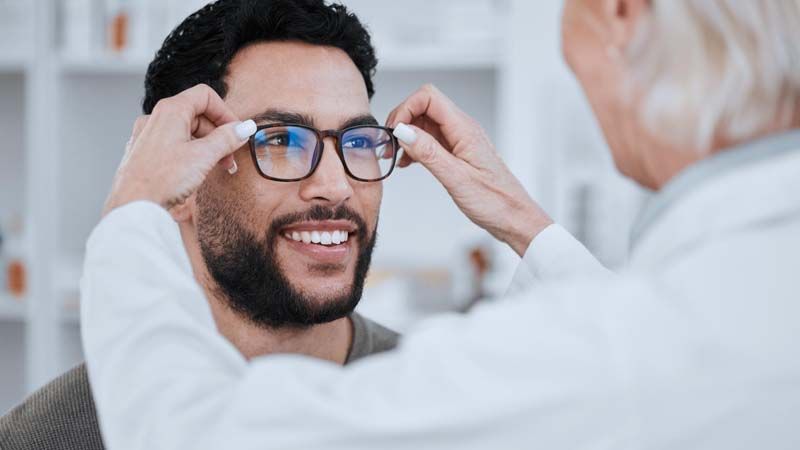Good eye health is crucial for maintaining quality of life, and taking care of your eyes should be a priority. With the increasing use of digital devices, environmental factors, and aging, eye health is more important than ever. Fortunately, there are several habits and practices that can help improve and maintain your eye health for the long term. In this article, we’ll explore some of the most effective ways to protect your eyes, prevent common eye conditions, and keep your vision sharp.
1. Eat a Nutrient-Rich Diet for Eye Health
A balanced diet rich in vitamins and minerals plays a vital role in supporting eye health. Certain nutrients, such as vitamin A, vitamin C, vitamin E, lutein, and zeaxanthin, have been found to support the health of the retina and protect against age-related vision problems like macular degeneration and cataracts.
- Vitamin A: Essential for maintaining the health of the retina and good night vision. You can find it in foods such as carrots, sweet potatoes, and leafy greens.
- Vitamin C: Known for its antioxidant properties, vitamin C helps reduce the risk of cataracts and supports the blood vessels in the eyes. Citrus fruits, strawberries, and bell peppers are great sources.
- Lutein and Zeaxanthin: These antioxidants are found in green leafy vegetables like spinach, kale, and broccoli. They help protect the eyes from harmful blue light and may reduce the risk of macular degeneration.
- Omega-3 Fatty Acids: These healthy fats support the retina and reduce the risk of dry eye syndrome. Omega-3s can be found in fatty fish such as salmon, flaxseeds, and walnuts.
Eating a well-rounded diet that includes a variety of colorful fruits and vegetables, along with healthy fats, is key to sustaining eye health over time.
2. Practice the 20-20-20 Rule for Digital Eye Strain
In today’s digital age, many people spend hours staring at screens, which can lead to digital eye strain, also known as computer vision syndrome. Symptoms include dry eyes, headaches, blurred vision, and eye fatigue. To combat this, the 20-20-20 rule is a simple but effective technique:
- Every 20 minutes, take a break and look at something 20 feet away for at least 20 seconds.
This simple exercise allows your eyes to relax and refocus, reducing the strain from prolonged screen time. Additionally, remember to adjust the brightness and contrast of your screen, and maintain proper posture to avoid neck and back strain.
3. Protect Your Eyes from UV Light
UV (ultraviolet) rays from the sun can cause serious damage to your eyes over time, leading to cataracts, macular degeneration, and even skin cancer around the eyes. To protect your eyes from UV damage, wear sunglasses that block 100% of UVA and UVB rays whenever you are outdoors. Make sure the lenses are large enough to protect the entire eye area.
It’s also a good idea to wear a wide-brimmed hat when spending extended periods of time in the sun, especially during peak hours when UV rays are the strongest, typically between 10 AM and 4 PM.
4. Quit Smoking for Better Eye Health
Smoking is harmful to nearly every organ in the body, including your eyes. Smoking increases the risk of developing several eye conditions, including cataracts, macular degeneration, and optic nerve damage. Studies have shown that smoking can also reduce blood flow to the eyes, leading to dry eyes and overall diminished eye health.
Quitting smoking is one of the most beneficial steps you can take for your eye health. If you need assistance, consider joining a smoking cessation program or consulting with a healthcare professional for support.
5. Stay Hydrated to Avoid Dry Eyes
Drinking enough water is essential for your overall health, and it’s particularly important for maintaining eye health. Dry eyes are a common issue, especially in dry climates or during the winter months when indoor heating can reduce humidity levels.
When you’re properly hydrated, your body can produce enough tears to keep your eyes moist and comfortable. Aim to drink plenty of water throughout the day, and consider using a humidifier if you live in a dry environment to help maintain moisture in the air.
6. Get Regular Eye Exams
Regular eye exams are essential for detecting eye problems early, especially since many eye diseases develop gradually and may not show symptoms until significant damage has occurred. Comprehensive eye exams can identify conditions such as glaucoma, cataracts, diabetic retinopathy, and macular degeneration before they become more serious.
Adults should have an eye exam every two years, and more frequently if you have risk factors such as a family history of eye disease, high blood pressure, or diabetes. Children should also undergo regular eye exams to ensure their vision is developing properly.
7. Give Your Eyes Rest and Enough Sleep
Just like any other part of your body, your eyes need rest to function optimally. Not getting enough sleep can lead to eye fatigue, dryness, and irritation. When you don’t get enough rest, the eyes don’t have time to recover and refresh, leading to discomfort and potential long-term issues.
Ensure you are getting 7-9 hours of sleep each night to allow your eyes to rest and rejuvenate. Avoid staring at screens for at least an hour before bed to promote better sleep quality, and consider using eye masks or lavender-scented products to help you relax before sleep.
8. Exercise for Overall Health and Eye Function
Regular physical exercise has a variety of health benefits, and it can also positively impact your eye health. Cardiovascular exercise, such as walking, cycling, or swimming, improves blood circulation, which helps deliver oxygen and nutrients to the eyes.
Exercise can also help manage chronic health conditions like diabetes and high blood pressure, which are risk factors for eye problems. Engaging in regular physical activity not only improves general health but also contributes to keeping your eyes healthy over time.
Conclusion
Taking care of your eyes is essential for maintaining clear vision and overall well-being. By following a healthy diet, protecting your eyes from UV light, practicing good eye habits, and scheduling regular eye exams, you can significantly reduce the risk of vision problems and keep your eyes healthy for years to come. Remember, eye health is a lifelong commitment, and by incorporating these simple yet effective strategies into your routine, you’ll be on your way to maintaining optimal eye function.
Ultimately, healthy eyes contribute to a better quality of life, so start taking steps today to protect and improve your vision for the future.



